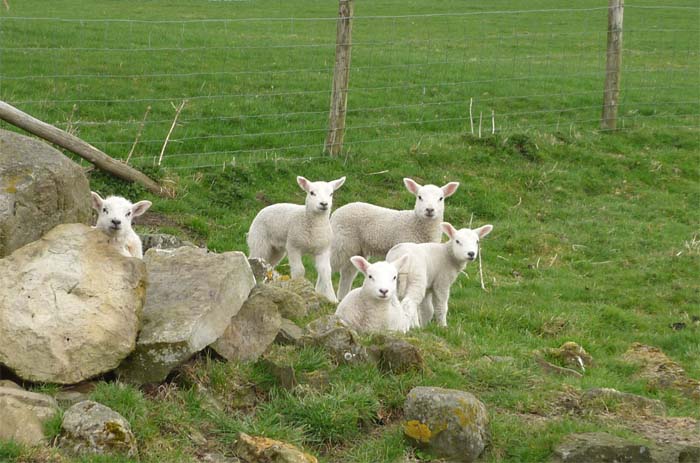
Sheep farmers across the country are feeling frustration at the current volatility in the lamb market, according to NFU livestock board chairman Charles Sercombe who warned that the instability was not beneficial for consumers.
The past few weeks have seen damaging fluctuations in lamb prices across England and Wales. A rise in the number of lambs coming to market triggered a sharp drop in prices which has led to farmers holding more lambs back, with throughputs then down over a third last week.
Sercombe, a sheep farmer in Leicestershire, said he’d been contacted by many people expressing their concerns: “As a sheep farmer myself, I share the complete frustration that our members have in trying to do business in this volatile market and I know only too well of the impact a 25 per cent* drop in the price of lamb over the course of a week has on a farming business,” said Mr Sercombe. “Sheep farmers, particularly those in the uplands, have had a tough year and this is the last thing we want to see. It is unsustainable for the prices to fluctuate like this and it’s bound to have an impact on farmer confidence going forward as well as the weight and the consistency of quality of lambs.
“The situation benefits no one. I would encourage farmers to work with their auctioneer or fieldsman to plan their marketing season to help them to better deal with this volatile market and produce a better product for the consumer.
“It is also essential that we start to see consistent demand with more British lamb on the shelves. We continue to urge retailers to demonstrate their commitment to British lamb, but the latest Beef and Lamb Watch figures from EBLEX show that the proportion of British packs of lamb on supermarket shelves has actually fallen compared to this time last year.
“We are well into the British season now and it is unacceptable to see any store that talks about stocking the best in season to be sourcing high levels of imported lamb. We frequently hear fine words from retail leaders but in many of the figures we have seen, there appears to be a serious disconnection between senior executives, buyers and packers.
“The NFU is committed to working with the supermarkets to improve their commitment to British sourcing and we will be holding them to account over promises they have made and their true British credentials.”
Next week the NFU will also be part of an industry-wide delegation to New Zealand, organised by EBLEX, aimed at sharing knowledge and getting a better understanding of the difficulties faced by farmers in each country.
Sercombe added: “Projections from New Zealand show a fall in future supplies and many sheep farms being switched out of lamb and into dairy due to sustained poor prices.
“Like sheep farmers in the UK, sheep farmers in New Zealand want a sustainable industry that allows farmers to invest, provides opportunities for the next generation, and delivers a quality product to the consumer. We’ve all been hard pressed this year, with bad weather, high input prices and a volatile market, with many farmers getting prices below their costs of production. That’s not sustainable for the industry, and it’s not going to secure top quality lamb product for consumers for the future.
“They are taking steps to reform their industry. We support the aims of the farmers involved in this work and look forward to seeing at first-hand how these plans are progressing.”
